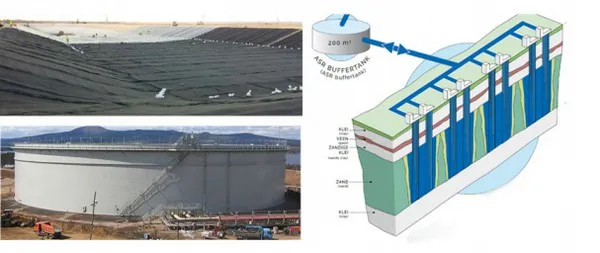To reduce water consumption per kg food product and stimulate the circular economy, Wageningen University and Research conducted a study on possibilities for integration of tomato production in greenhouses and land-based aquaculture in the Queretaro region in Mexico. Coupling tomato production in greenhouses and land-based aquaculture (and algae production) might lead to more food production per unit of water and provide tools towards a more circular economy in Mexico.
The current desk study, an inventory that may lead to an experimental cooperation project, is based on input data from greenhouses as provided by United Farms – Finka. Further analyses are based on
the expertise of the participating WUR researchers as well as literature-based information from several disciplines. The cooperation between these different disciplines appears essential for the integration of multiple production systems.
The main outcome of this project is specific knowledge about how to combine and integrate local greenhouse production of high-quality vegetables such as tomatoes with land-based aquaculture and
algae production in the central region of Mexico. The system integration is based on the concept of aquaponics to increase water use efficiency and improve wastewater management, thereby reducing the environmental impact.

The integrated concept of 4 ha greenhouse operations combined with aquaponics and algae production results in improvement of water use efficiency. The water use efficiency in terms of kg food per m3 is increased by producing fish and vegetables and algae using the same amount of water. Depending on systems used, the amount of fish produced in such a system may range from 140–700 ton per year wet weight, or 35–170 ton dry matter per year, and an algal production of 10–12 tons dry matter. Furthermore, compared to standalone RAS and greenhouse operations, a decoupled aquaponic system also offers efficient use of nutrients.
The most efficient systems configuration of combining the water and nutrient flows between these three production systems is:
- An aquaculture system at the beginning of the water system supply (decoupled aquaponics setup)
- Followed by a greenhouse production system such as United Farms
- Use discharge water for algae production in a photobioreactor
Although not part of the specific research question but relevant for efficient water use, a number of options and technologies available for minimizing the total need for extracting groundwater as a freshwater resource are briefly indicated:
1. Minimizing losses by good water management practices
2. Improving the quality of the used groundwater before irrigation
3. Alternative water sourcing by rainwater harvesting using basins
4. Use of more salt-tolerant crop species
5. Recovering drain water from the horticulture greenhouses
The calculations and integration of the different production systems are based on a 4 ha greenhouse area and our best estimations of data. Implementation of such integrated systems at scale, however,
would first need follow-up pilot experiments under (highly variable) local conditions. Furthermore, information from the pilot-scale could also be the input for a techno-economic evaluation.
Read the complete research here.
Authors: Sijtsma, L., Boedijn, A., Kals, J., Muizelaar, W., Appelman, W.
This research project has been carried out by Wageningen Food & Biobased Research, Wageningen Livestock Research, Wageningen Plant Research and is commissioned by the Dutch Ministry of Agriculture, Nature and Food Quality (project number 6224103700).
 For more information:
For more information:
Wageningen University & Research
www.wur.nl
